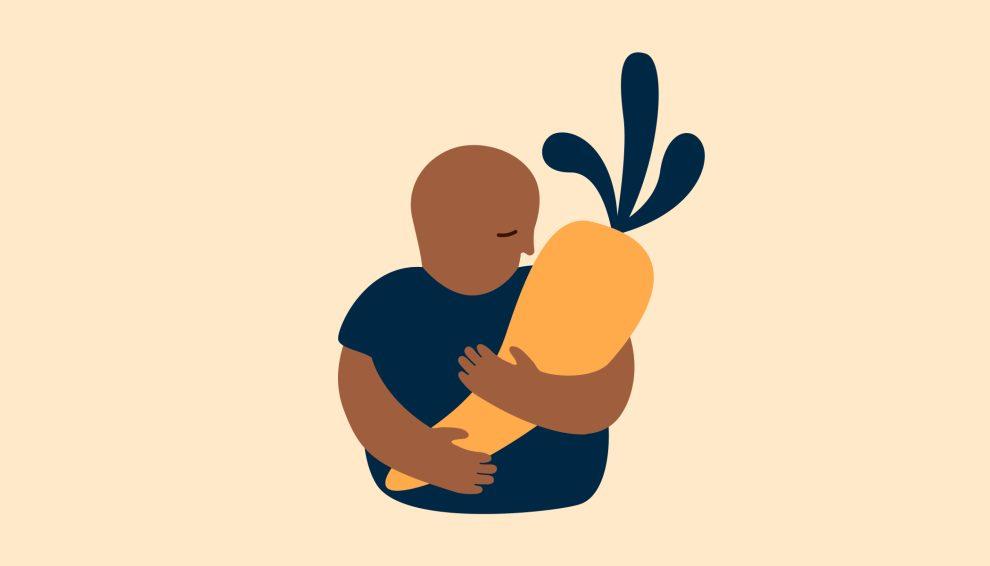So how does our appetite work? When we are hungry, the body identifies our need for food. It then sends a signal to the brain, like a stomach rumble, to let us know it’s time to eat. Hormones play a key role in regulating appetite. The main hormones involved in the regulation of the sensation of hunger are ghrelin, which generates the sensation of hunger, and leptin, which tells the brain that you have eaten enough.
Many factors can affect the regulation of these hormones and interfere with our appetite. Most people can experience a loss of appetite at one time or another, whether due to environmental factors, medications, or particular physical or psychological conditions. But when the loss of appetite is prolonged, we must investigate its cause.
What are the causes of loss of appetite?
In most cases, decreased appetite is short-lived, but if it persists, an underlying problem may need to be treated. These are some of the main causes.
1. A viral or bacterial infection
Viral and bacterial infections, including illnesses such as acute gastroenteritis, influenza, and urinary tract infections, are a common cause of loss of appetite.
This is because when you are sick, the body releases chemicals called cytokines, which regulate appetite as part of an inflammatory and immune response. These cytokines act on neurons in the brain, reducing our appetite and making us less anxious to eat.
2. A chronic health problem
Some chronic diseases can seriously affect our appetite in different ways. These are some of the conditions that can cause poor appetite.
chronic pain
Migraines, fibromyalgia, and arthritis can cause you to lose interest in food. In fact, our body will need all its resources to fight against the disease or the pain caused by it, so it will save strength by temporarily abandoning certain functions, such as the regulation of hunger or digestion.
Diabetes
People with diabetes may lose their appetite due to a condition called gastroparesis, which is slow stomach emptying. Gastroparesis appears more frequently in the context of unbalanced diabetes with complications, particularly in the nervous system.
digestive disorders
Conditions that affect the gut, such as inflammatory bowel disease (IBD) or irritable bowel syndrome (IBS), can affect our appetite through symptoms that make us less likely to eat, such as abdominal pain, bloating, diarrhea, and intestinal spasms.
3. Age
As we age, our appetite changes. It is estimated that up to 30% of older people have less appetite and eat less, leading to weight loss and nutritional deficiencies. One study found this is because older people have higher levels of the satiety-promoting hormone peptide YY, which makes them feel full quickly.
Decreased appetite can also be due to conditions such as Alzheimer’s and Parkinson’s or other conditions including dental and swallowing problems. Lack of exercise, feelings of loneliness or social isolation, or the inability to prepare meals can also cause a decreased appetite.
4. Psychological factors
Mental health issues can have a big impact on your appetite. People with depression often lose interest in food, and our appetite tends to decrease when we feel anxious, stressed, or after traumatic events, such as a breakup or the death of a loved one.
During stressful events, the brain releases adrenaline, also called the stress hormone, which slows down the digestive system. Depression triggers the production of corticotropin-releasing hormone, or CRH, in the brain’s hypothalamus, which also curbs appetite.
5. Medicines
Certain medications can have the side effect of decreasing your appetite, including opioid pain relievers, antidepressants, antibiotics, and type 2 diabetes medications.
Cancer treatments can also cause loss of appetite. About 60% of people diagnosed with cancer say they have it. Treatments such as chemotherapy and immunotherapy can cause taste changes and symptoms such as nausea, which can further worsen the condition.
If you think one of your medications is causing a change in your appetite, it’s always best to talk to a doctor. They will know how to advise you and, if necessary, suggest a suitable alternative that you can try.
6. Underactive thyroid
If you have hypothyroidism, also called hypothyroidism, your thyroid gland doesn’t make enough hormones. This causes many bodily functions to slow down, which can result in loss of appetite. Other symptoms are weight gain, fatigue, sensitivity to cold, and depression.
If you notice the above symptoms appear, a doctor may order a blood test and hormone test to check the level of thyroid hormones in your body.
7. Anorexia Nervosa
Anorexia nervosa is an eating disorder and serious mental health condition characterized by the desire to keep weight as low as possible by limiting food intake, exercising too much, or both. This disorder can also cause a reduced appetite.
People who suffer from it often have a distorted and negative image of their body. Anorexia nervosa requires specialized medical treatment and can be life-threatening in the most severe cases.
8. Alcohol addiction
Excessive alcohol consumption is accompanied by many physical symptoms, such as an upset stomach, sallow complexion, numbness, and tingling in the feet and hands. Alcohol can also have a big impact on your appetite, and you may lose interest in food, with your attention focused solely on alcohol.
If you find it difficult to moderate your alcohol consumption, consult a doctor who can recommend proper management.
Are there other symptoms that can affect the loss of appetite?
Loss of appetite can also be a direct result of other symptoms.
1. Loss of taste
Covid-19 affects our appetite in the same way as other viruses, but the loss of smell and/or taste linked to it further aggravates its impact on our appetite. One study found that 87% of respondents who experienced loss of smell or taste due to COVID-19 felt a decrease in the pleasure of eating.
2. Nausea
Pregnancy is a common cause of loss of appetite, mainly due to nausea. The term “morning sickness” is misleading, because morning sickness can occur at any time of the day. They are particularly common during the first trimester of pregnancy.
Hyperemesis gravidarum is an extreme form of pregnancy-related nausea and vomiting, which can lead to dehydration and weight loss. If you’re affected, it’s important to talk to a doctor or midwife, as this condition usually requires treatment with anti-nausea medications and may require hospitalization for severe dehydration.
3. Fatigue
If you feel physical or mental fatigue, you may feel less like cooking or eating. Loss of appetite and fatigue are often symptoms of other diseases and are related to each other: loss of appetite naturally reduces energy reserves, which leads to fatigue.
When should I see a doctor?
Loss of appetite can have a wide variety of causes, but it is important to see a doctor if other symptoms appear simultaneously, for example:
- stomach ache;
- a change in intestinal transit;
- trouble swallowing;
- unintentional weight loss;
- frequent indigestion.




